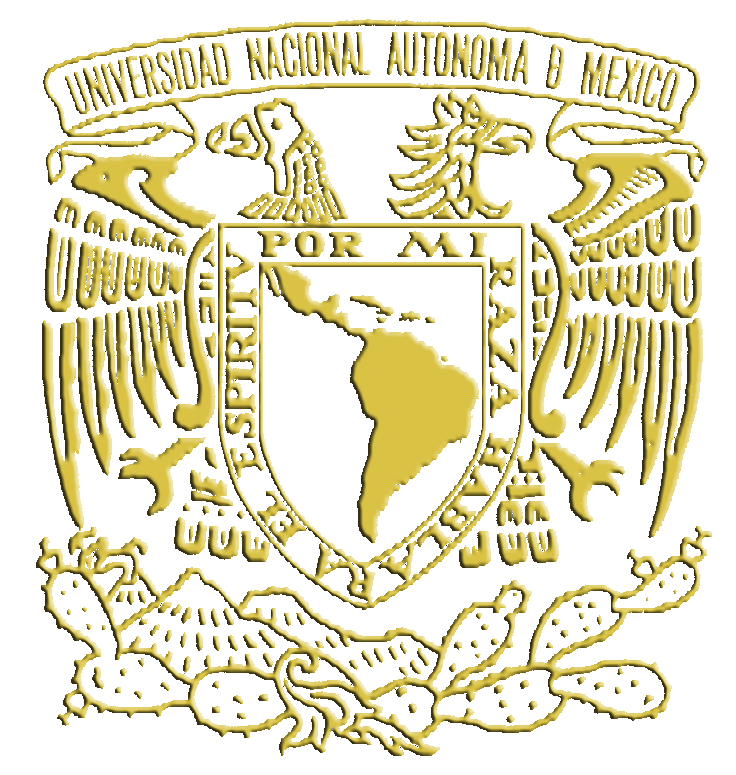Apuntes al método científico en el siglo XXI desde una perspectiva jurídica / Leonardo Iván Barahona Tapia, Leonardo Vinicio Rosillo Abarca, luis Ramiro Ayala Ayala, Ignacio Fernando Barcos Arias
Tipo de material: TextoTipo de contenido: texto Tipo de medio: computadora Tipo de portador: recurso en líneaOtro título: Notes on the scientific method in the 21st century from a legal perspective [Título paralelo]Tema(s): Método científico | Ciencias jurídicas | Investigaciones | ResultadosRecursos en línea: Texto completo
En: Bibliotecas Anales de Investigación. -- Vol. 19 No. 2, No. Esp. 1 (2023) p. 152-157.Resumen: Introducción: El método científico y su aplicabilidad en el mundo contemporáneo es una solución eficaz a corto y mediano plazo de los problemas teórico- práctico que enfrenta la sociedad hoy. Las investigaciones jurídicas encuentran en este método un instrumento eficaz y eficiente para lograr sus resultados. Objetivo: analizar teóricamente los principales aspectos relativos al método científico y su aplicabilidad al entorno de las investigaciones jurídicas, con énfasis en los criterios doctrinales más trascendentes. Métodos científicos: Esta investigación, de corte cualitativa, se auxilió de los métodos analítico y deductivo y la técnica de análisis de documentos. Todos en su conjunto lograron permitir sistematizar los principales criterios teóricos relativos al método científico, luego de una amplia revisión bibliográfica y deducir su aplicación al mundo del derecho. Conclusiones: El método científico es el estudio empírico controlado, crítico y sistemático de hipótesis que intentan explicar presuntas relaciones entre varios fenómenos. El método científico es un proceso objetivo, sistemático y controlado cuyas etapas son: 1) definición del problema, 2) formulación de hipótesis, 3) recogida y análisis de datos, 4) confirmación o rechazo de hipótesis, 5) resultados, 6) conclusiones. Se encuentra cuatro perspectivas del método científico aplicado al campo jurídico: Concepción filosófica del método jurídico, concepción metodológica del derecho, concepción histórico-crítica y concepción estricta. Las investigaciones jurídicas encuentran en el método científico un instrumento eficiente para sus resultados. – Los Autores.
Resumen: Introduction: The scientific method and its applicability in the contemporary world is an effective short and medium-term solution to the theoretical-practical problems that society faces today. Legal investigations find in this method an effective and efficient instrument to achieve their results. Objective: theoretically analyze the main aspects related to the scientific method and its applicability to the legal research environment, with emphasis on the most important doctrinal criteria. Scientific methods: This qualitative research will be assisted by analytical and deductive methods and the document analysis technique. All of them together managed to systematize the main theoretical criteria related to the scientific method, after an extensive bibliographic review and deduce their application to the world of law. Conclusions: The scientific method is the controlled, critical and systematic empirical study of hypotheses that attempt to explain alleged relationships between various phenomena. The scientific method is an objective, systematic and controlled process whose stages are: 1) definition of the problem, 2) formulation of hypotheses, 3) collection and analysis of data, 4) confirmation or rejection of hypotheses, 5) results, 6) conclusions. There are four perspectives of the scientific method applied to the legal field: philosophical conception of the legal method, methodological conception of law, historical-critical conception and strict conception. Legal investigations find in the scientific method an efficient instrument for their results. – Los Autores.
TextoTipo de contenido: texto Tipo de medio: computadora Tipo de portador: recurso en líneaOtro título: Notes on the scientific method in the 21st century from a legal perspective [Título paralelo]Tema(s): Método científico | Ciencias jurídicas | Investigaciones | ResultadosRecursos en línea: Texto completo
En: Bibliotecas Anales de Investigación. -- Vol. 19 No. 2, No. Esp. 1 (2023) p. 152-157.Resumen: Introducción: El método científico y su aplicabilidad en el mundo contemporáneo es una solución eficaz a corto y mediano plazo de los problemas teórico- práctico que enfrenta la sociedad hoy. Las investigaciones jurídicas encuentran en este método un instrumento eficaz y eficiente para lograr sus resultados. Objetivo: analizar teóricamente los principales aspectos relativos al método científico y su aplicabilidad al entorno de las investigaciones jurídicas, con énfasis en los criterios doctrinales más trascendentes. Métodos científicos: Esta investigación, de corte cualitativa, se auxilió de los métodos analítico y deductivo y la técnica de análisis de documentos. Todos en su conjunto lograron permitir sistematizar los principales criterios teóricos relativos al método científico, luego de una amplia revisión bibliográfica y deducir su aplicación al mundo del derecho. Conclusiones: El método científico es el estudio empírico controlado, crítico y sistemático de hipótesis que intentan explicar presuntas relaciones entre varios fenómenos. El método científico es un proceso objetivo, sistemático y controlado cuyas etapas son: 1) definición del problema, 2) formulación de hipótesis, 3) recogida y análisis de datos, 4) confirmación o rechazo de hipótesis, 5) resultados, 6) conclusiones. Se encuentra cuatro perspectivas del método científico aplicado al campo jurídico: Concepción filosófica del método jurídico, concepción metodológica del derecho, concepción histórico-crítica y concepción estricta. Las investigaciones jurídicas encuentran en el método científico un instrumento eficiente para sus resultados. – Los Autores.
Resumen: Introduction: The scientific method and its applicability in the contemporary world is an effective short and medium-term solution to the theoretical-practical problems that society faces today. Legal investigations find in this method an effective and efficient instrument to achieve their results. Objective: theoretically analyze the main aspects related to the scientific method and its applicability to the legal research environment, with emphasis on the most important doctrinal criteria. Scientific methods: This qualitative research will be assisted by analytical and deductive methods and the document analysis technique. All of them together managed to systematize the main theoretical criteria related to the scientific method, after an extensive bibliographic review and deduce their application to the world of law. Conclusions: The scientific method is the controlled, critical and systematic empirical study of hypotheses that attempt to explain alleged relationships between various phenomena. The scientific method is an objective, systematic and controlled process whose stages are: 1) definition of the problem, 2) formulation of hypotheses, 3) collection and analysis of data, 4) confirmation or rejection of hypotheses, 5) results, 6) conclusions. There are four perspectives of the scientific method applied to the legal field: philosophical conception of the legal method, methodological conception of law, historical-critical conception and strict conception. Legal investigations find in the scientific method an efficient instrument for their results. – Los Autores.
| Tipo de ítem | Biblioteca actual | Clasificación | URL | Estado | Fecha de vencimiento | Código de barras | Reserva de ítems |
|---|---|---|---|---|---|---|---|
|
|
INFOBILA | Enlace al recurso | Disponible |
Introducción: El método científico y su aplicabilidad en el mundo contemporáneo es una solución eficaz a corto y mediano plazo de los problemas teórico- práctico que enfrenta la sociedad hoy. Las investigaciones jurídicas encuentran en este método un instrumento eficaz y eficiente para lograr sus resultados. Objetivo: analizar teóricamente los principales aspectos relativos al método científico y su aplicabilidad al entorno de las investigaciones jurídicas, con énfasis en los criterios doctrinales más trascendentes. Métodos científicos: Esta investigación, de corte cualitativa, se auxilió de los métodos analítico y deductivo y la técnica de análisis de documentos. Todos en su conjunto lograron permitir sistematizar los principales criterios teóricos relativos al método científico, luego de una amplia revisión bibliográfica y deducir su aplicación al mundo del derecho. Conclusiones: El método científico es el estudio empírico controlado, crítico y sistemático de hipótesis que intentan explicar presuntas relaciones entre varios fenómenos. El método científico es un proceso objetivo, sistemático y controlado cuyas etapas son: 1) definición del problema, 2) formulación de hipótesis, 3) recogida y análisis de datos, 4) confirmación o rechazo de hipótesis, 5) resultados, 6) conclusiones. Se encuentra cuatro perspectivas del método científico aplicado al campo jurídico: Concepción filosófica del método jurídico, concepción metodológica del derecho, concepción histórico-crítica y concepción estricta. Las investigaciones jurídicas encuentran en el método científico un instrumento eficiente para sus resultados. – Los Autores.
Introduction: The scientific method and its applicability in the contemporary world is an effective short and medium-term solution to the theoretical-practical problems that society faces today. Legal investigations find in this method an effective and efficient instrument to achieve their results. Objective: theoretically analyze the main aspects related to the scientific method and its applicability to the legal research environment, with emphasis on the most important doctrinal criteria. Scientific methods: This qualitative research will be assisted by analytical and deductive methods and the document analysis technique. All of them together managed to systematize the main theoretical criteria related to the scientific method, after an extensive bibliographic review and deduce their application to the world of law. Conclusions: The scientific method is the controlled, critical and systematic empirical study of hypotheses that attempt to explain alleged relationships between various phenomena. The scientific method is an objective, systematic and controlled process whose stages are: 1) definition of the problem, 2) formulation of hypotheses, 3) collection and analysis of data, 4) confirmation or rejection of hypotheses, 5) results, 6) conclusions. There are four perspectives of the scientific method applied to the legal field: philosophical conception of the legal method, methodological conception of law, historical-critical conception and strict conception. Legal investigations find in the scientific method an efficient instrument for their results. – Los Autores.


No hay comentarios en este titulo.